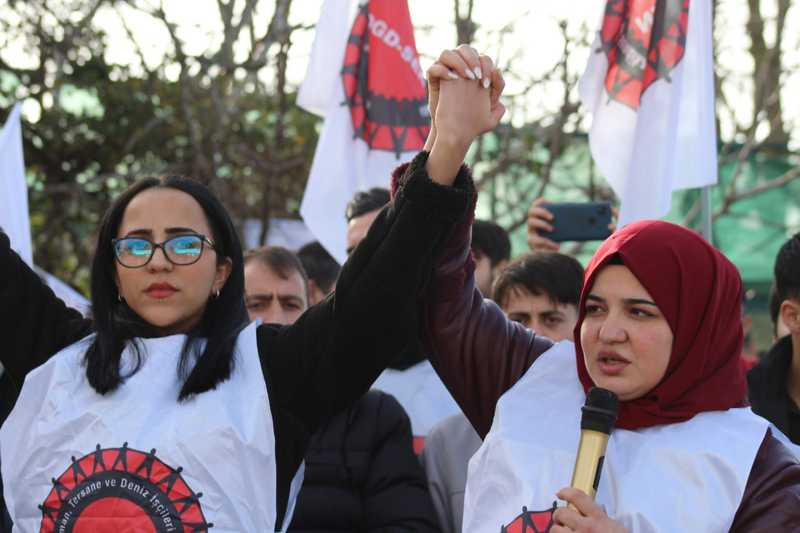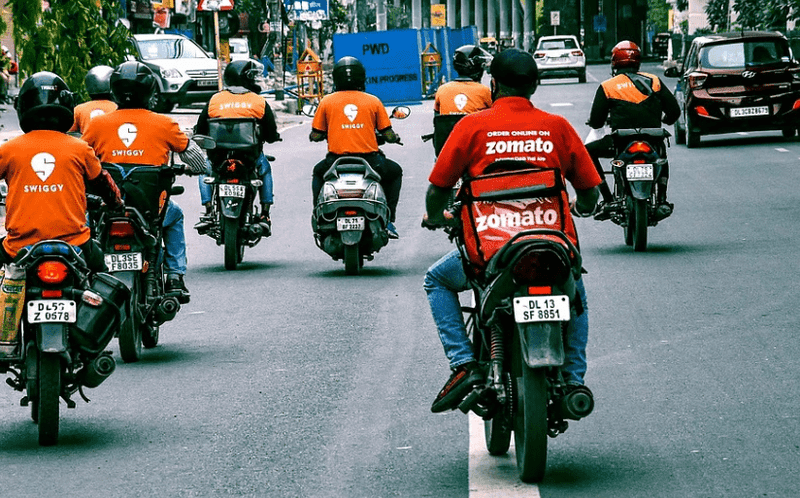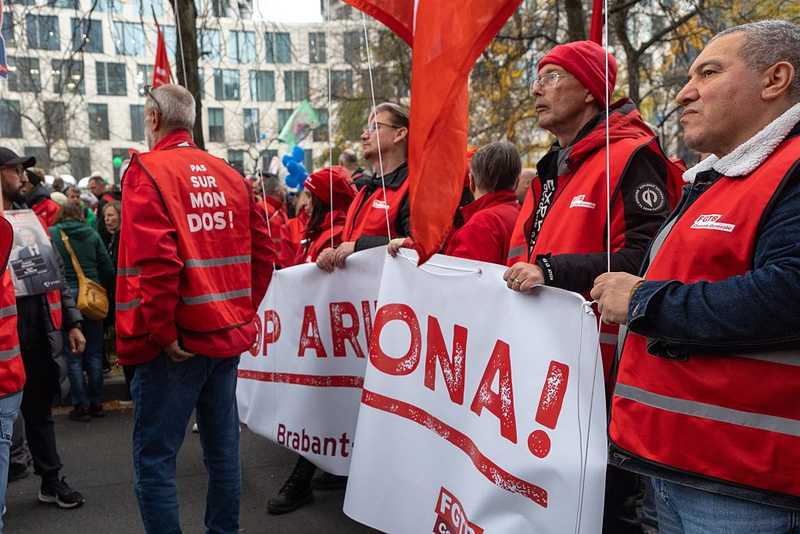
In March 1995, the World Summit for Social Development, held in Copenhagen, focused the attention of the international community on the nature and roots of social trends and problems. At the Summit, the Member States approved the Copenhagen Declaration and Programme of Action for Social Development. Commitment 3 of the Copenhagen Declaration refers to the goal of full employment, with full respect for workers’ rights and with the participation of employers, workers and their respective organizations, and specifically mentions the goal of safeguarding the “basic rights” of workers. These “basic rights” were linked to the fundamental Conventions of the International Labour Organization (ILO), which at that time referred to the prohibition of forced labour and child labour, to freedom of association, the right to form and join trade unions, the right to collective bargaining, and the principle of non-discrimination.
Since that time, the world of work has undergone a process of radical transformation, with profound changes set within a framework of persistent inequalities, which impact on the nature and future of work and on the standing and dignity of workers. Labour standards are being tested by the impacts of the pandemic, geopolitical challenges, the climate emergency and the digital transformation, and they require continual updating if they are to sustain decent work. Other factors that must be taken into account include gender equality, sustainability, the adaptation of job markets to combat climate change, the employment status of digital platform workers, and the proper management of new technologies in the sphere of labour relations.
The speed with which the aforementioned aspects are impacting on the world of work demands a rapid response from states so as not to further delay the achievement of decent work for all and so as to ensure their capacity to serve the principles of social justice when addressing the imminent transitions.
As recognized in previous resolutions relating to the implementation of the outcomes of the World Summit for Social Development, including Resolution 78/174 adopted on 19 December 2023, more than 25 years after the World Summit for Social Development was held, progress is slow and unequal and continues to be hindered by significant gaps. Despite the efforts made by the fundamental institutions of the world of work, such as the ILO, legislative procedures at international level continue to lag very far behind the changes and emerging challenges mentioned above. Thus, while recognizing the importance of the resolution amending the ILO Declaration on Fundamental Principles and Rights at Work (2022), we continue to be concerned by the lack of legislative response at the state and global levels to the threats and challenges listed.
The Second World Summit for Social Development, to be held in 2025, will seek to address persisting gaps, recommit to the Copenhagen Declaration and Programme of Action for Social Development and their implementation, and give momentum to the execution of the 2030 Agenda.
The aim of this Summit is to draft a new Social Contract, whose pillars, without question, must include decent work, full and productive employment, social dialogue, respect for international standards, social protection, and social justice. These pillars must develop and update the outdated concept of “basic rights” set forth in the Copenhagen Declaration to represent what the international community today understands as essential rights for all workers in all countries of the world.
To this end, we propose that the objectives of the Summit include the adoption of a “Global Charter of Labour Rights”, which must combine established basic standards with innovations in the protection of workers’ rights and take into account the challenges stemming from the ecological and digital transitions.
The Global Charter of Labour Rights will be built upon the four pillars of decent work, updating and expanding them in order to respond to the current challenges of the world of work, as a commitment of the international community to ensuring a future of work based on dignity, self-actualization, inclusiveness, stability, full, productive and freely chosen employment, and an equitable distribution of the profits thereof among all people, in all labour contexts, irrespective of country or sector.
To this end, the signatory states undertake to:
- Guarantee the right to equal opportunities and to non-discrimination on the grounds of gender or any other grounds of discrimination at work;1 safeguard the right to care; ensure maternity and paternity rights at work; establish sufficient measures to ensure life-work balance; adopt sufficient standards to effectively combat violence and harassment at work; and design policies that contribute to the economic empowerment of women in a changing world of work.
- Ensure working hours that allow for work-life balance, that are shared equitably and are aligned with social, community and environmental needs.
- Guarantee fair pay that is commensurate with the value of the work performed, precluding discriminatory pay differences and ensuring a living wage that honours human dignity.
- Respect freedom of association and the right to strike; the right of trade unions to participate in company management and governance; the rights to freedom of peaceful assembly and of association at the workplace and outside it; and the right to information, consultation and participation, through trade unions.
- Ensure the existence of permanent institutions for democratic participation in the sphere of labour relations through collective bargaining and social dialogue; and promote transnational and international collective agreements, paying particular attention to global framework agreements.
- Guarantee effective standards for the eradication of child labour and forced labour, paying particular attention to labour situations at the bottom end of transnational companies’ global value chains.
- Safeguard the right of all workers, regardless of sector and type of company, to stable employment and to clear, predictable, transparent and dignified working conditions. Adopt labour regulations which prioritize the establishment of permanent contracts and implement efficient measures to boost the transfer from informal to formal employment.
- Support a fair digital transition for workers to ensure that the use of artificial intelligence and algorithms by companies respects labour rights, personal data and privacy. Guarantee labour protection in the digital platform sector. Strengthen the role of trade unions and collective bargaining, especially with regard to rights to information and to consultation, in processes of technological change.
- Ensure a green transition which fully respects labour rights. Boost employment in sustainable occupations and in those aimed at combating climate change; promote green collective bargaining as well as protection and adaptation measures in the workplace to address adverse climate conditions.
- Guarantee the right to health and safety at work and develop efficient management policies and systems which take into account the new risks at the workplace, especially biological and chemical risks. Establish regulations committed to the goal of zero deaths, and to preventing work-related injuries and illnesses, especially those linked to mental health. Pay particular attention to night work and shift work carried out by young people.
- Safeguard the right to professional training, the development of work skills and lifelong learning, with a focus on young people in order to promote stable, quality youth employment. Ensure retraining policies aimed at guaranteeing dignified and productive employment in the latter stages of people’s working lives.
- Promote access to efficient employment services and adopt policies to support employment actively through personalized assistance, especially for the most vulnerable people and groups, so that they may re-join the workforce and transition professionally.
- Establish sufficient minimum welfare systems and protection levels, which respond to gender issues and are sensitive to diversity, and increase their cover progressively to all persons throughout their lives, including persons working in the informal economy.
- Guarantee the labour and social security rights of migrants, regardless of their migration status.
- Support an efficient and adequate Workplace Inspection body and maintain employment tribunals with the necessary structure and funding to enable efficient legal protection in an apposite timeframe and a suitable administrative sanction system.
- Ensure companies are held liable for violations of human rights or environmental damage committed throughout their global value chain, establishing at least clear and sufficient company due diligence measures for human rights and sustainability.
- Promote measures to boost the circular and solidarity economy, and to protect the self-employed.
Madrid, November 14th, 2024
Ana Gómez Hernández
President of the National Association of Labour Relations Lawyers (ASNALA, by its Spanish acronym)
Katty Angélica Caballero Sega
Latin American Association of Labour Lawyers (ALAL, by its Spanish acronym)
Antonio Baylos Grau
Honorary President of the European and Latin American Centre for Social Dialogue (CELDS, by its Spanish acronym) of the University of Castilla La Mancha
José Luis Monereo Pérez
President of the Spanish Association of Health and Social Security (AESSS, by its Spanish acronym)
María Emilia Casas Baamonde
President of the Spanish Association of Labour Law and Social Security (AEDTSS, by its Spanish acronym)
Lucie Studničná
President of the European Economic and Social Committee (EESC) Workers' Group
Esther Lynch
General Secretary of the European Trade Union Confederation (ETUC)
Luc Triangle
General Secretary of the International Trade Union Confederation (ITUC)
José María Álvarez Suárez
General Secretary of the General Union of Workers (UGT, by its Spanish acronym)
Unai Sordo Calvo
General Secretary of Workers' Commissions Union (CCOO, by its Spanish acronym)
Hussein Idow Ali
Ministry of Labour and Social Affairs of Somalia
Victor Pellegrini Mammana
Deputy Executive Secretary of Labour and Employment of Brazil
Mariame Sy
Ambassador of Senegal to Spain
Fernando Elísio Freire De Andrade
Minister of State for Family, Inclusion and Social Development of Cape Verde
Gloria Inés Ramírez Ríos
Minister of Labour of Colombia
Luka Mesec
Deputy Prime Minister and Minister of Labour, Family, Social Affairs and Equal Opportunities of Slovenia
Wilmer Javier Fernandez
Minister of Labour and Social Security of Honduras
Enas Dahadha Atara
Minister of Labour of the State of Palestine
Yolanda Díaz Pérez
Second Vice-President and Minister of Labour and Social Economy of Spain
The document is also supported by: -
- Latin American Association of Labour Judges (ALJT, by its Spanish acronym)
- Trade Association of Labour Lawyers and Attorneys of Chile (AGAL, by its Spanish acronym
- Francisco Largo Caballero Foundation
- May 1 Foundation
- Defense Institute of the Working Class of Brazil (DECLATRA))
- Lavoro Institute of Brazil
- Novos Paradigmas Institute of Brazil (INP, by its Portuguese acronym)
- Spanish and Latin American Network of Labour and Trade Unionism (RELATS, by its Spanish acronym)
- Network of Labour Desks of Brazil (Rede Lado)





